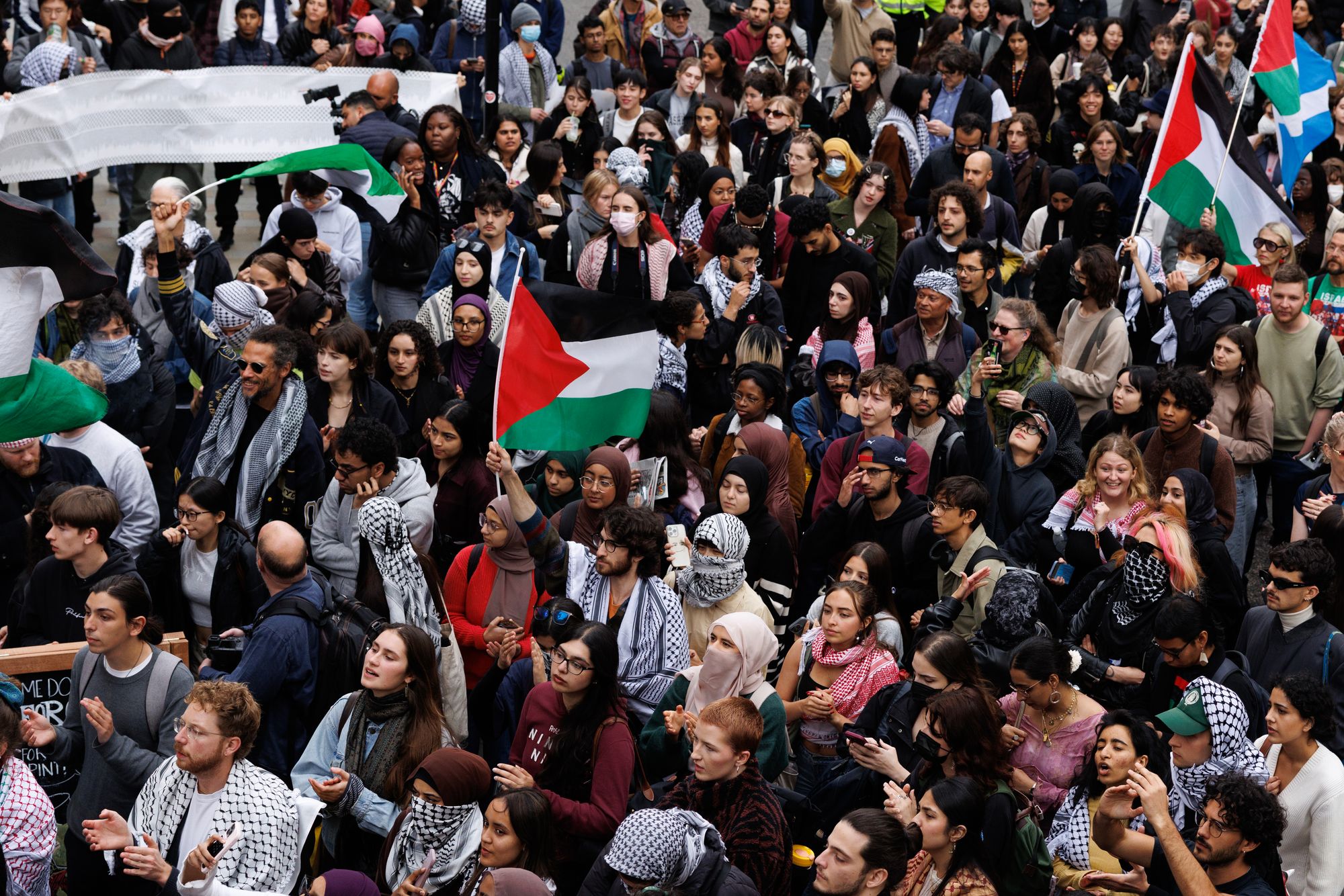Keir Starmer has called for a police crackdown on some of the chants heard at pro-Palestine protests.
His comment came just hours after students defied his calls and took part in pro-Gaza marches on university campuses across the UK on the second anniversary of Hamas’s October 7 attacks on Israel.
Among the chants heard at the protests was: “From the river to the sea, Palestine will be free”, which some consider the slogan to be antisemitic as they believe it calls for the eradication of Israel.
Proponents of the chant claim they are calling for an end to conflict in Gaza and the West Bank.
The anniversary came less than a week after knife-wielding terrorist Jihad Al-Shamie, 35, killed two men at Heaton Park Hebrew Congregation Synagogue in Manchester.
The prime minister had described the protests as “un-British” and claimed they showed a lack of respect.

He had also warned that pro-Palestine protests have been used by some as a “despicable excuse to attack British Jews”.
The prime minister told journalists travelling with him to India that when it come to making the Jewish community feel safe, just days after the terror attack on a synagogue in Manchester during which two people were killed, “I do think there are actions that we need to take and that is what we will do.”
He pointed to an announcement by the home secretary Shabana Mahmood at the weekend that police would in future be able to asses the “cumulative” impact of such protests.
But, he said: “I think we need to review more broadly public order powers – and there will be a series of actions that we will agree in due course across Whitehall.”
“I’ve asked the home secretary to look more broadly at what other powers are available, how they’re being used, and whether they should be changed in any way.”
He added: “I think we need to go further than that in relation to some of the chants that are going on at some of these protests.”
Pressed on what he meant by that, he said: “Obviously operational matters are very much a matter for the police. So there’s only so much the government can do.
“But I do think we need to have a conversation with various police forces about the way in which these are being policed and what measures can be taken.
“That has to be part of the review that we carry out into what powers do we have and how they’re being exercised? And then the question of ‘do any of these powers therefore need to be changed or enhanced’? And that’s the exercise we’re going through. But we are talking at length to leaders of the Jewish community about this, as you would expect.”
On Sunday Ms Mahmood said repeated large-scale protests had caused “considerable fear” for the Jewish community.
The previous day officers arrested hundreds of people at a Palestine Action protest in London, just days after the Manchester synagogue attack.
Met Police said 492 people were arrested at the protest in support of the proscribed group, which was controversially classed by the UK government as a terrorist organisation earlier this year.
Most of the arrests were made at Trafalgar Square, where around 1,000 protesters sat silently, some holding signs backing Palestine Action, despite calls from Sir Keir and police chiefs to stay away following the terror attack in Manchester.
At the time Paula Dodds, chair of the Metropolitan Police Federation, said officers were “physically exhausted” but continue to be called on “to facilitate these relentless protests. And we are coming under attack for doing so. How can this be right?” she asked.
But Amnesty International said it should not be the job of the police to arrest people “peacefully sitting down”, and that the arrests amounted to a breach of the UK’s human rights obligations.
